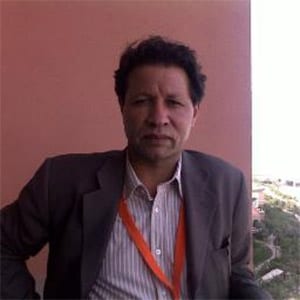The US returned to the Syrian scene in record time and became the main party distributing roles in the battle for Al-Raqqa in order to emphasise that no solution will be reached without its involvement; the same applies with Daesh in Iraq. There are a number of explanations for this, following the belief prevalent at the end of the Obama administration that the US withdrawal from the region was a result of strategic thinking and not simply the ex-president’s considerations and calculations.
Washington is concerned that with the defeat of Daesh and its branches, it has become apparent that Russia is unable to fill the vacuum left behind by America’s initial withdrawal from the scene. Russia revealed, through its actions in Syria, that it is not a country that can bear enormous responsibilities; it did not take a second step after it prevented the fall of the Assad regime. It has tried, since the end of last year, to lead in Syria by means of the Ankara ceasefire agreement and the Astana meetings, but it has not achieved anything concrete. While Russian troops stayed to defend Bashar Al-Assad and his regime, Moscow did not make any real progress towards a ceasefire. Hence, it was unable to convince the international parties concerned with Syria that it is able to play a leadership role in this thorny and complicated issue.
The second reason is that the US, unlike Russia, is still considered to be an international reference that the EU and all the Middle Eastern countries, apart from Iran, stand by. Moscow, meanwhile, loses credibility daily due to its inability to enforce the ceasefire and create a political process in Syria. It also seems that all of its manoeuvres have the objective of protecting Assad.
Furthermore, any solution for any complicated international matter, not just Syria, in which the US does not play a part or give its support cannot be successful. Washington is capable, even as a spectator, of thwarting any international equation of which it does not approve; this was manifested clearly in the past two weeks in Syria, when it moved its attention to the battle to liberate Al-Raqqa and controlled the distribution of roles therein.
This move was intended to reshuffle the pack in Syria and return to the idea proposed by Washington about two years ago that the priority is to defeat Daesh. It is interesting that the parties which opposed this at the time are now rushing to book their place in the battle.
It is not yet clear what role the Syrian regime will play in Al-Raqqa. Although the regime made progress towards the city last month with support from Russia and the Kurdish Democratic Union Party’s militias, the chances of it participating in the battle are slim. The only parties qualified so far to engage in the fight are the Kurds and the militants of Euphrates Shield backed by Turkey.
Assad’s regime believes that its preservation by Russia will automatically translate to its rehabilitation internationally. However, the question that arises here is if the US does not involve it in the battle to liberate Al-Raqqa and the fight against Daesh, then why would Russia help the regime to survive? This is especially pertinent since Washington is not on the same track as Moscow in Syria. It explains why Russia is not involved in the battles to liberate Mosul and Al-Raqqa; it is still allied with Iran and Hezbollah in Syria and this is not acceptable to the US military, which is making the vital decisions over the fighting to liberate both cities.
Translated from Al-Araby Al-Jadeed, 12 March 2017
The views expressed in this article belong to the author and do not necessarily reflect the editorial policy of Middle East Monitor.


![Damaged buildings are seen after the Assad Regime carried out airstrikes on 27 February 2017 [Mohammed Amin Qurabi/Anadolu]](https://i0.wp.com/www.middleeastmonitor.com/wp-content/uploads/2017/03/2017_2_27-airstrikes-in-syria.jpg?fit=1200%2C800&ssl=1)









